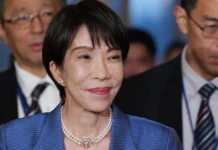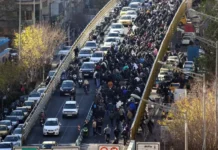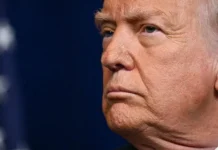China, Japan, and South Korea have agreed to coordinate their response to U.S. tariffs, according to a social media post affiliated with Chinese state broadcaster CCTV. However, South Korea has downplayed this assertion, calling it “somewhat exaggerated.”
The report follows the first economic dialogue between the three nations in five years, held on Sunday. The discussions aimed to strengthen regional trade ties as these leading Asian exporters brace for the impact of U.S. tariffs imposed by President Donald Trump.
According to the Weibo account Yuyuan Tantian, Japan and South Korea are exploring ways to import semiconductor raw materials from China, while China is interested in acquiring chip products from Japan and South Korea. The post also mentioned that the three nations agreed to enhance supply chain collaboration and hold further discussions on export controls.
When asked about this claim, a spokesperson from South Korea’s trade ministry stated that the characterization of a “joint response to U.S. tariffs” seemed exaggerated. The spokesperson instead pointed to the official joint statement, which emphasized economic and trade cooperation.
During the meeting, the three trade ministers committed to expediting negotiations for a trilateral free trade agreement to support both regional and global commerce, as noted in the statement released after the talks.
“The three countries discussed the global trade environment, and as reflected in the joint statement, they acknowledged the necessity of continued economic and trade collaboration,” the South Korean trade ministry spokesperson said.
Japan’s foreign ministry has yet to issue a response regarding the report.
The meeting of trade ministers comes just ahead of President Trump’s anticipated tariff announcement on Wednesday, dubbed “Liberation Day,” signaling further shifts in Washington’s trade policies.
Despite their economic interdependence, China, Japan, and South Korea continue to grapple with regional disputes, including territorial disagreements and Japan’s handling of wastewater release from the damaged Fukushima nuclear power plant.



















